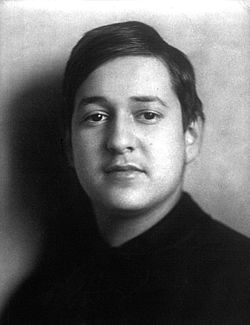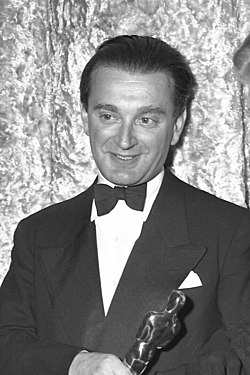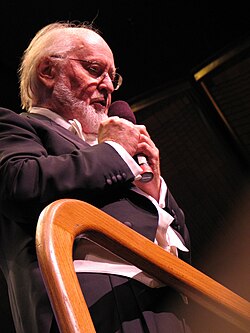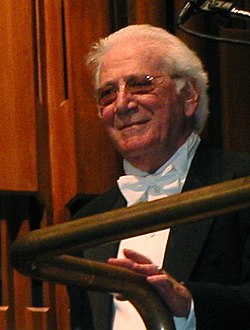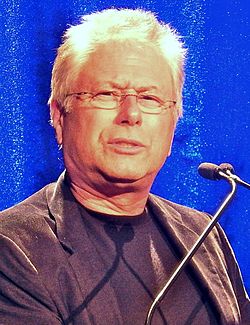| Year | Finalists | Ref |
|---|
| 1967 | Original Score: Bonnie and Clyde , The Flim-Flam Man , Live for Life , Two for the Road , Wait Until Dark
Scoring of Music — Adaptation or Treatment: A Countess from Hong Kong , The Family Way , The Happiest Millionaire , How to Succeed in Business Without Really Trying , The Jungle Book | [14] |
|---|
| 1968 | Original Score: For Love of Ivy , The Heart Is a Lonely Hunter , Rachel, Rachel , Romeo and Juliet , War and Peace
Scoring of a Musical Picture: C'mon, Let's Live a Little , Chitty Chitty Bang Bang , The One and Only, Genuine, Original Family Band | [15] |
|---|
| 1969 | Original Score: Bob & Carol & Ted & Alice , Gaily, Gaily , The Happy Ending , The Madwoman of Chaillot , True Grit
Scoring of a Musical Picture: Can Heironymus Merkin Ever Forget Mercy Humppe and Find True Happiness? , Marry Me! Marry Me!, Oh! What a Lovely War | [16] |
|---|
| 1970 | Original Score: The Aristocats , Beneath the Planet of the Apes , Dirty Dingus Magee , Pieces of Dreams , Ryan's Daughter
Original Song Score: Beyond the Valley of the Dolls , Cotton Comes to Harlem , Norwood , R. P. M. , Where's Poppa? | [17] |
|---|
| 1971 | Original Score: Escape from the Planet of the Apes , The French Connection , The Hellstrom Chronicle , Kotch , Sometimes a Great Notion
Original Song Score or Adaptation Score: Honky , Jud , Zachariah | [18] |
|---|
| 1972 | Original Score: Ben , Fellini's Roma , The Life and Times of Judge Roy Bean , The Other
Original Song Score or Adaptation Score: Alice's Adventures in Wonderland , 1776 , Snoopy Come Home , Young Winston | [19] |
|---|
| 1973 | Original Score: Enter the Dragon , The Last American Hero , Oklahoma Crude , The Paper Chase , Robin Hood
Original Song Score or Adaptation Score: Bang the Drum Slowly , Jonathan Livingston Seagull , Lost Horizon , O Lucky Man! | [20] |
|---|
| 1974 | Original Score: The Castaway Cowboy , The Conversation , Earthquake , The Golden Voyage of Sinbad , The White Dawn
Original Song Score or Adaptation Score: Claudine , Huckleberry Finn , Lenny , Mame | [21] |
|---|
| 1975 | Original Score: The Adventure of Sherlock Holmes' Smarter Brother , The Eiger Sanction , The Hindenburg , The Other Side of the Mountain , The Yakuza
Original Song Score or Adaptation Score: The Day of the Locust , Lucky Lady , The Return of the Pink Panther , W.W. and the Dixie Dancekings | [22] [23] |
|---|
| 1976 | Original Score: King Kong , Logan's Run , The Pink Panther Strikes Again , Rocky , Silent Movie
Original Song Score or Adaptation Score: The Bad News Bears , Car Wash , The Duchess and the Dirtwater Fox , Leadbelly | [24] |
|---|
| 1977 | Original Score: Airport '77 , Audrey Rose , Black Sunday , Bobby Deerfield , A Bridge Too Far , Equus , Gasp , The Gauntlet , The Island of Dr. Moreau , Islands in the Stream , Joseph Andrews , MacArthur , 1900 , Providence , The Rescuers , Rollercoaster , The Sentinel , Walking Tall: Final Chapter
Original Song Score or Adaptation Score: New York, New York | [25] |
|---|
| 1978 | Original Score: Capricorn One , Coma , Magic , Revenge of the Pink Panther , Watership Down
Original Song Score or Adaptation Score: The Cheap Detective , Damien - Omen II , The Deer Hunter , The Magic of Lassie | [26] |
|---|
| 1979 | Original Score: Escape from Alcatraz , The Frisco Kid , The Great Train Robbery , Meteor , Time After Time
Original Song Score or Adaptation Score: The Europeans , Hair , Meeting with Remarkable Men , Wise Blood | [27] |
|---|
| 2018 | Annihilation , Avengers: Infinity War , The Ballad of Buster Scruggs , Crazy Rich Asians , The Death of Stalin , Fantastic Beasts: The Crimes of Grindelwald , First Man , A Quiet Place , Ready Player One , Vice | [28] |
|---|
| 2019 | Avengers: Endgame , Bombshell , The Farewell , Ford v Ferrari , Frozen II , Jojo Rabbit , The King , Motherless Brooklyn , Pain and Glory , Us | [29] |
|---|
| 2020/21 | Ammonite , Blizzard of Souls , The Invisible Man , Jingle Jangle: A Christmas Journey , The Life Ahead , The Little Things , The Midnight Sky , Mulan , Tenet , The Trial of the Chicago 7 | [30] |
|---|
| 2021 | Being the Ricardos , Candyman , The French Dispatch , The Green Knight , The Harder They Fall , King Richard , The Last Duel , No Time to Die , Spencer , The Tragedy of Macbeth | [31] |
|---|
| 2022 | Avatar: The Way of Water , Black Panther: Wakanda Forever , Devotion , Don't Worry Darling , Glass Onion: A Knives Out Mystery , Guillermo del Toro's Pinocchio , Nope , She Said , The Woman King , Women Talking | [32] |
|---|
| 2023 | American Symphony , Barbie , The Boy and the Heron , The Color Purple , Elemental , The Holdovers , Saltburn , Society of the Snow , Spider-Man: Across the Spider-Verse , The Zone of Interest | [33] |
|---|
| 2024 | Alien: Romulus , Babygirl , Beetlejuice Beetlejuice , Blink Twice , Blitz, Challengers, The Fire Inside, Gladiator II , Horizon: An American Saga – Chapter 1 , Inside Out 2 , Nosferatu, The Room Next Door , Sing Sing, The Six Triple Eight , Young Woman and the Sea | [34] |
|---|
| 2025 | Avatar: Fire and Ash , Captain America: Brave New World , Diane Warren: Relentless, F1 , Hedda , A House of Dynamite , Jay Kelly , Marty Supreme , Nuremberg , Sirāt , Train Dreams , Tron: Ares , Truth & Treason , Wake Up Dead Man , Wicked: For Good | [35] |
|---|



